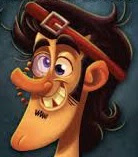Gaw and others have recently been answering the challenge to list books that have “influenced your thinking, that you have found yourself referring to most often in reflection, speech, and writing”. (I suspect this game was originally meant for people writing professionally and whose opinions actually matter.... but that didn’t stop me, oh no....)
Ulysses by James Joyce
Ok, sorry, an appallingly pretentious first choice. A third of the way in I thought Joyce the most arrogant and annoying of writers, but for some reason I persevered and became enthralled. It’s the occasional speeches, vignettes and descriptions which most stay in the mind, and it’d be a shame to analyse why.
Omeros by Derek Walcott
Another work with a Homeric theme: Helen as the symbol of beauty that men must fight over, but transferred it to the island of St. Lucia. An epic poem which superbly combines wordcraft and pungent depiction of West Indian life. Two years later Walcott was awarded the Nobel Prize for Literature.
Moby Dick by Herman Melville
A book which taught me a little (I dare to hope) about growing into manhood. Others had Robert Louis Stevenson or Hemmingway, perhaps, but this story about single-mindedness, pursuit and the overcoming of fear – and the consuming madness of it all – helped fill a gap in my education.
The Poems of Gerard Manley Hopkins
A Jesuit priest who wrote in secret and in a very intense, innovative style compared to his Victorian contemporaries. In addition to religious themes his depictions of nature are exquisite. He resurrected a more “vigorous” Anglo-Saxon prosody and wasn’t afraid to chop English syntax down to convey maximum effect.
The Poems of John Donne
I love metaphysics, me! Even though I still don’t really understand what the word means. I enjoy the almost transgressive way Donne treats concepts and emotions as palpable entities, which he can then manipulate as he wishes. Oh, and there’s quite a bit of smut in there as well.
The Poems of Robert Lowell
A manic depressive, drunken, disaster of a man, perhaps, but for me maybe the best post-WW2 English-language poet. He could do free verse, but whilst others were splurging out whatever entered their heads he also realised the power of formalisms, mastered them, and made them fresh and exciting.
By Grand Central Station I Sat Down and Wept by Elizabeth Smart
A novel about being in love, even when that love rides roughshod over morality and common-sense. To make her point Smart weaves in bits of other literature, like the sexier bits from The Song Of Songs. It’s also a book that turned me onto the tricky genre of prose poetry…..
Our Lady of The Flowers by Jean Genet
Written about the same time (1943) as Grand Central and another work using poetic language. But it’s about transvestites. Genet, having been frequently in prison and doing his best writing there, also showed disregard for boundaries: Jean-Paul Sartre called it "the epic of masturbation". Tasteful!
The Heart is a Lonely Hunter by Carson McCullers
The books of Carson McCullers affected me a lot when I was young. They’re set in the Southern States of the U.S.A. and involve outsiders: deaf-mutes, dwarves, transgendered people, and those who simply feel they don’t fit in. All done with great empathy. The Ballad of The Sad Café is another good 'un.
The Good Soldier Schweik by Jaroslav Hašek
Great satire. Schweik is a little man who deals in stolen dogs, but as a Austro-Hungarian citizen in 1914 he’s drafted into World War I. He appears to have good intentions but is hilariously incompetent and the frustration of all who have to deal with him - I rather identified with him.

